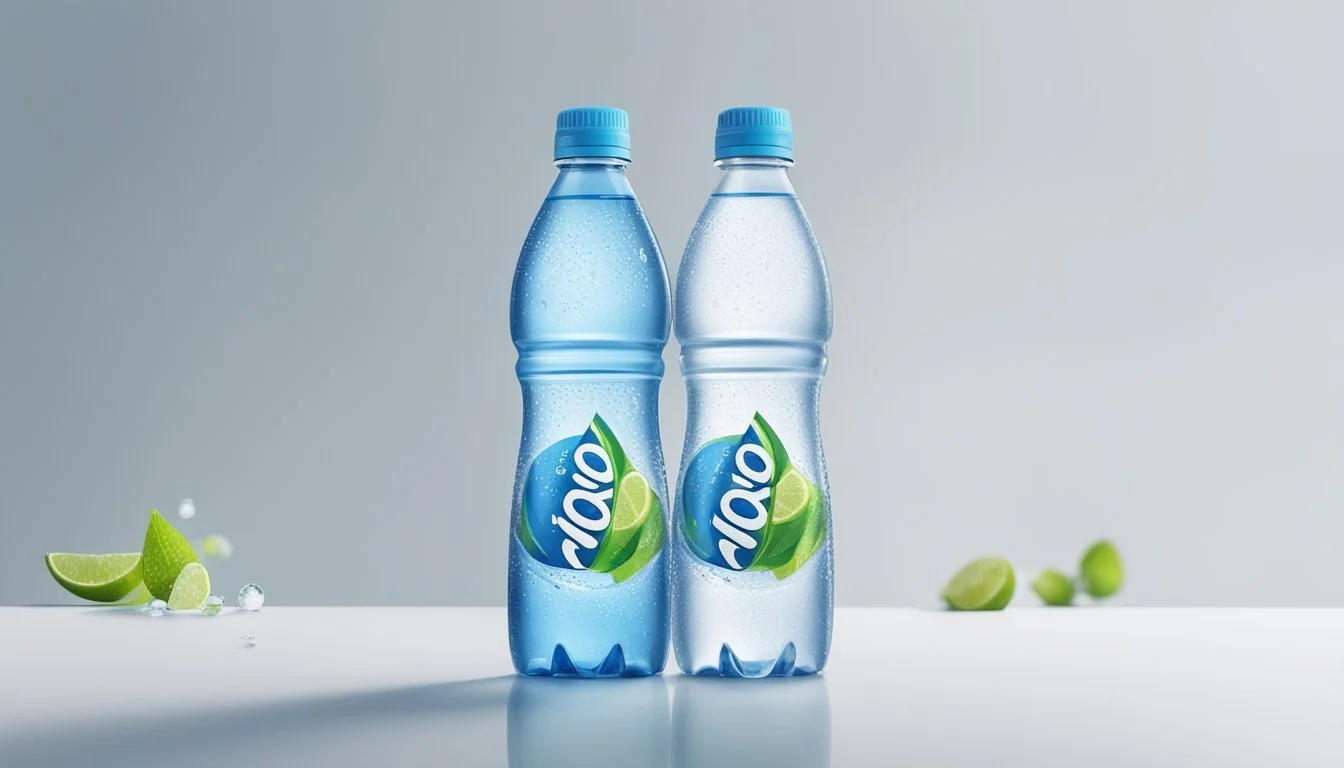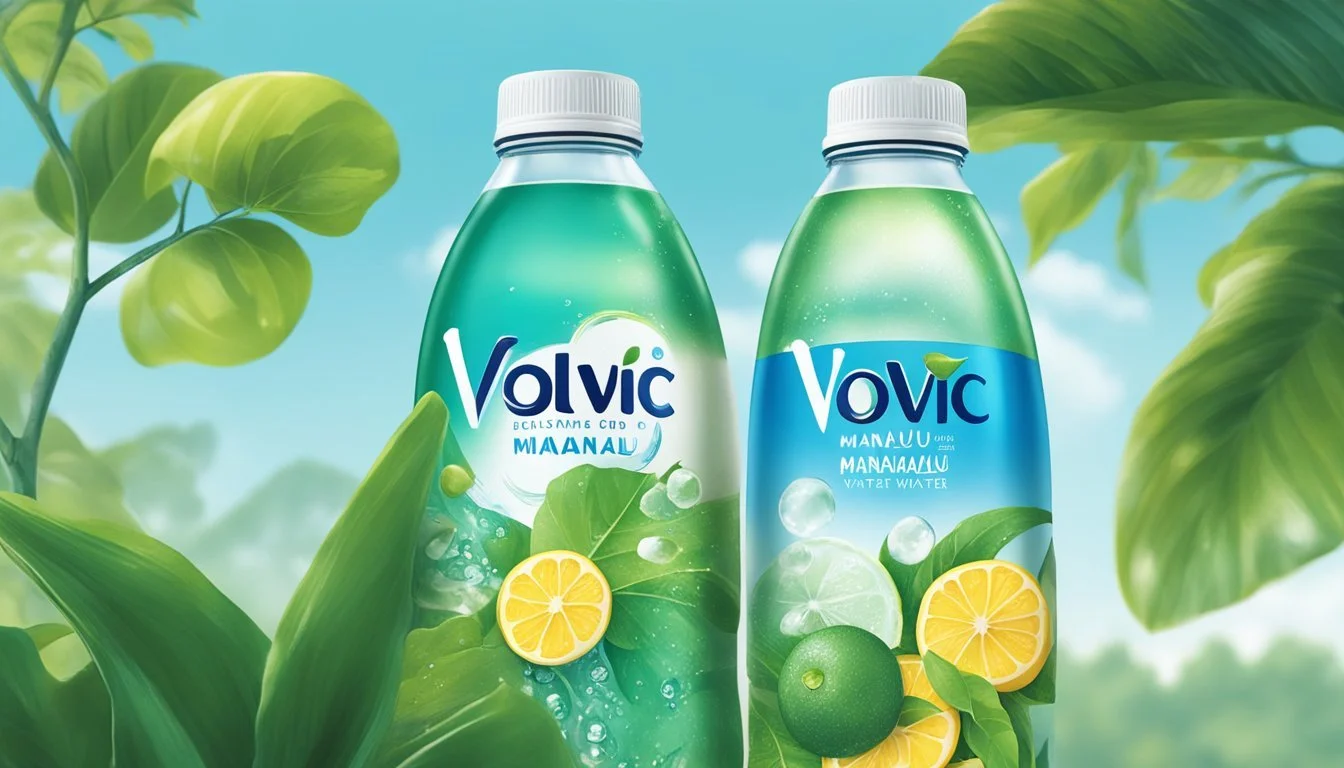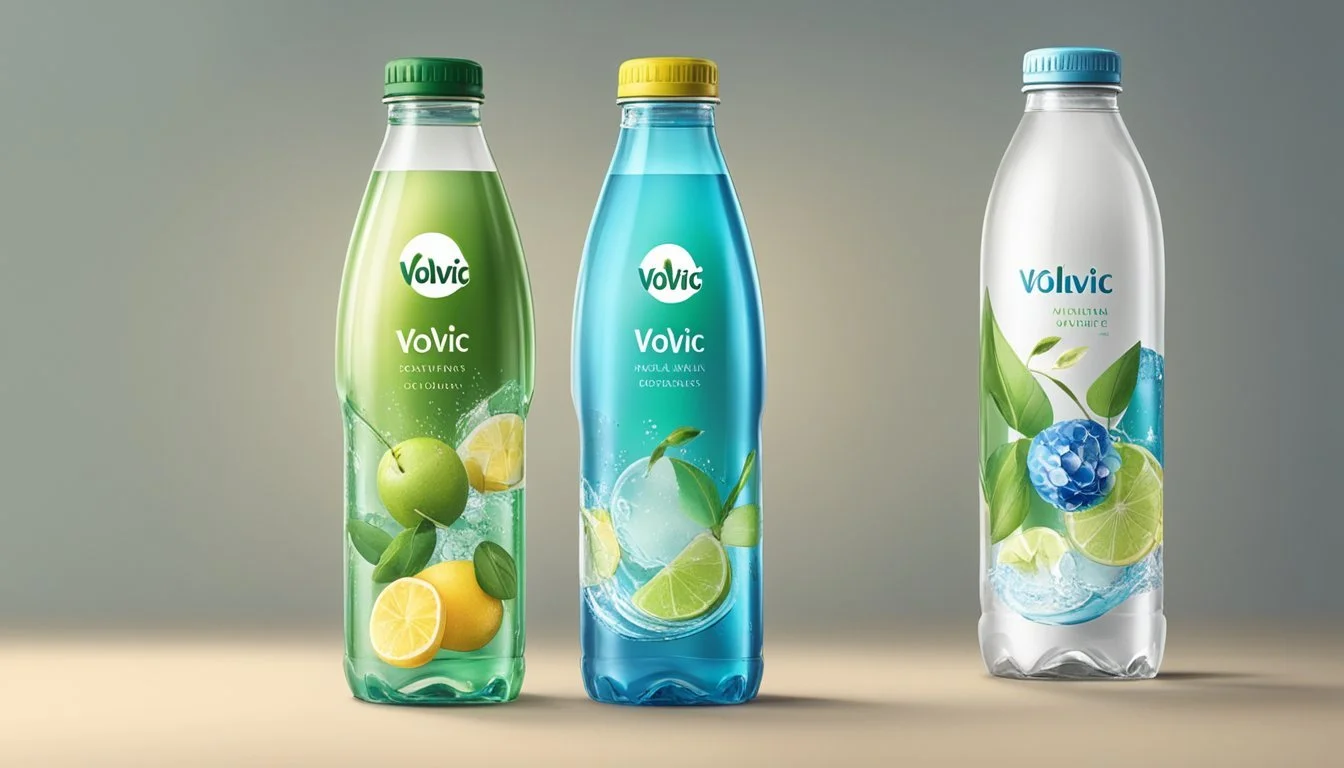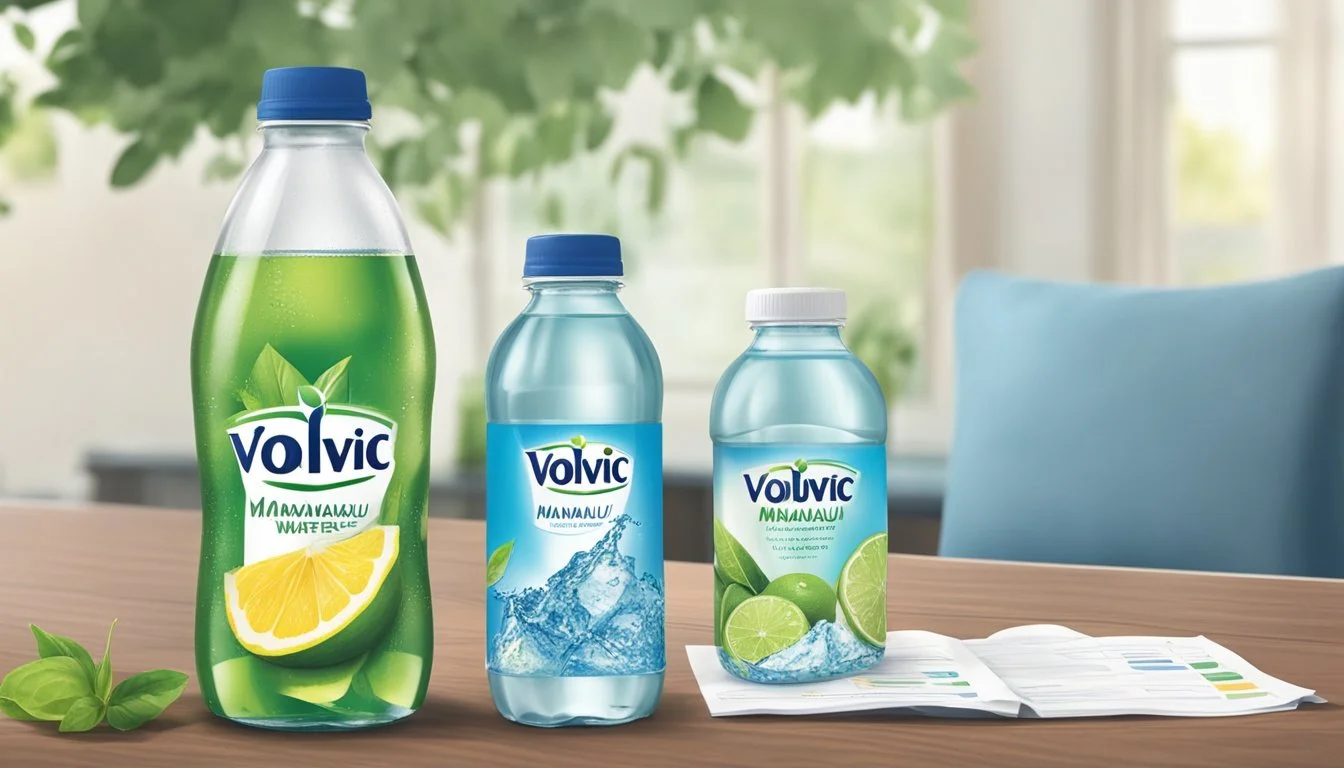Volvic vs. Mananalu
Comparing Quality, Taste, and Sustainability
When it comes to bottled water, discerning consumers often find themselves choosing between popular brands like Volvic and the environmentally-conscious newcomer, Mananalu. Both brands offer unique advantages and employ different approaches to purification and packaging. Volvic, sourced from natural volcanic rock filtration systems, stands out for its mineral-rich content and naturally refreshing taste.
In contrast, Mananalu, launched by Jason Momoa, emphasizes sustainability by packaging purified water in 100% recyclable aluminum cans. This innovative approach not only ensures a clean, crisp taste but also aligns with environmental goals by reducing single-use plastic waste. For eco-conscious consumers, Mananalu offers an attractive alternative without compromising on quality.
Choosing the better option depends on individual preferences and priorities. While Volvic provides a naturally filtered, mineral-rich hydration experience, Mananalu appeals with its commitment to environmental sustainability and clean taste.
Assessing Quality and Purity in Bottled Water
Assessing the quality and purity of bottled water involves understanding various factors such as pH levels, mineral content, and the filtration and purification processes employed. In addition, taste profiles can distinguish one brand from another despite similar purification methods.
PH Levels and Mineral Content
The pH level of bottled water is crucial as it can affect both taste and health. Volvic water is sourced from natural springs in France and has a slightly acidic pH level around 7. Volvic is known for its unique mineral content, including calcium, magnesium, and potassium. These minerals not only enhance the taste but also contribute to essential dietary needs.
Mananalu, on the other hand, offers purified water with an alkaline nature. This means the pH level is higher, usually above 8, which some consumers prefer for its perceived health benefits. The mineral content in Mananalu’s water is carefully managed to ensure it complements the alkaline pH, focusing on providing purified water without a metallic aftertaste.
Filtration and Purification Processes
Volvic employs a natural filtration process where water passes through six layers of volcanic rock. This natural filtration method ensures the water remains pure and clean, retaining its unique mineral profile.
Mananalu uses advanced purification techniques to ensure the highest quality. The water undergoes rigorous filtration processes, often including reverse osmosis, to remove impurities effectively. Their commitment to environmental sustainability also shines through as they package their water in 100% recyclable aluminum bottles, aiming to reduce single-use plastics.
Taste Profile Comparison
The taste of bottled water can be subjective, depending on the consumer's palate and expectations. Volvic water is often described as having a clean and crisp taste, thanks to its balanced mineral content and natural filtration. The slightly acidic pH level combined with the mineral richness results in a refreshing and smooth flavor profile.
Mananalu provides a pure and clean taste, attributed to its high pH levels and rigorous purification process. The alkaline nature of Mananalu water often appeals to those seeking a soft and mild taste without any aftertaste. The environmental mission behind the brand may also add to the perceived taste experience, aligning with consumer values towards sustainability.
Health and Hydration Benefits
When comparing Volvic and Mananalu, one must consider their potential impacts on hydration and health. Each brand offers unique properties that can affect your overall well-being.
Hydration and Electrolyte Enhancement
Both Volvic and Mananalu contribute positively to hydration. Volvic, known for its mineral-rich composition, contains essential electrolytes like calcium, magnesium, and potassium. These electrolytes help maintain proper fluid balance in the body, supporting critical physiological functions.
Mananalu, a relatively new contender, positions itself as an environmentally friendly option. It includes similar electrolytes, though specific concentrations can vary. Sampling its electrolyte content is vital for those seeking detailed nutritional benefits.
Maintaining adequate hydration is crucial for health. Electrolytes play a significant role in muscle function, nerve transmission, and overall hydration. Both waters can support these functions, reinforcing the importance of choosing a bottled water that meets individual needs.
Essential Minerals and Health Impact
Volvic is sourced from the volcanic region of France, resulting in a unique mineral profile. It is slightly alkaline with a pH level around 7. This can help neutralize acidity in the body, promoting better health.
The water also contains sufficient levels of minerals like calcium and magnesium which are beneficial for bone health and metabolic function. Regular consumption can contribute to meeting daily mineral requirements, particularly for those with low dietary intake.
Mananalu focuses on sustainable packaging and hydration. It aims to offer a balanced mineral content, although it may vary. The emphasis on environmentally eco-friendly solutions does not compromise health benefits, providing essential minerals necessary for maintaining well-being.
By understanding the specific mineral content and properties of each brand, consumers can make informed decisions on which bottled water best supports their hydration and health goals.
Environmental Sustainability and Impact
Volvic and Mananalu both emphasize sustainability, but they approach it through different packaging materials and environmental initiatives. This section explores how each brand manages their packaging recyclability, transportation carbon footprint, and pollution reduction.
Packaging Materials and Recyclability
Volvic uses plastic bottles, which are recyclable in many regions. However, plastic recycling rates can be inconsistent, leading to significant waste. Volvic has initiated projects to increase the use of recycled plastic in their bottles, aiming to reduce the dependence on virgin plastic.
Mananalu opts for aluminum bottles, which are infinitely recyclable and generally have higher recycling rates. Aluminum's durability and recyclability make it an eco-friendly choice. This reflects Mananalu's commitment to sustainable packaging alternatives and reducing the reliance on single-use plastics.
Carbon Footprint and Transportation
Volvic sources its water from natural springs in France. It emphasizes local distribution within Europe to reduce carbon emissions from transportation. However, exporting Volvic to distant markets increases its carbon footprint.
Mananalu adopts a different approach by using local production facilities to minimize the carbon footprint of its transportation network. They prioritize low-emission logistics options to lower their overall environmental impact. Additionally, the lighter weight of aluminum bottles compared to glass can further reduce carbon emissions during shipping.
Waste Management and Pollution Reduction
Volvic focuses on reducing plastic waste through extensive recycling campaigns and promoting the use of recyclable materials. It supports initiatives aimed at cleaning up plastic pollution and collaborates with environmental organizations to address waste management.
Mananalu goes a step further by eliminating single-use plastics from their line-up. They emphasize pollution reduction through the use of recyclable aluminum and engage in partnerships with organizations dedicated to combating ocean pollution. This aligns with Mananalu's broader environmental mission of reducing waste and promoting sustainable living practices.
Brand Ethos and Consumer Trust
Examining the ethos of Volvic and Mananalu reveals distinctive approaches to sustainability and consumer loyalty. These brands leverage unique missions to gain trust and market position.
Mission-Driven Branding
Mananalu, launched by actor Jason Momoa, prioritizes environmental sustainability. Their mission involves reducing single-use plastic by using aluminum bottles, which are easier to recycle. This approach appeals to eco-conscious consumers.
Volvic focuses on natural purity and health. Sourced from volcanic springs, Volvic emphasizes the mineral richness and health benefits of its water. Their branding aligns with wellness and natural lifestyles, attracting health-conscious individuals.
Both brands' missions are central to their identities and inform their marketing strategies.
Market Position and Public Perception
Mananalu's presence is fueled by strong social media campaigns and celebrity endorsement from Jason Momoa. Their commitment to sustainability garners positive public perception and drives brand loyalty among environmentally aware customers.
Volvic holds a significant market position in Europe. Known for its natural, volcanic source, it enjoys trust for its purity and health benefits. This reputation has helped maintain a loyal customer base.
Public perception of both brands aligns with their marketing focuses, fostering trust and loyalty through clear values and consistent messaging.
Practical Considerations for Consumers
When choosing between Volvic and Mananalu, consumers need to weigh factors like cost, packaging, and convenience to make an informed decision.
Cost Comparison and Value
Cost is a crucial factor for many consumers. Volvic generally falls into the mid-range price category for bottled water, offering natural spring water sourced from volcanic regions. Its value proposition lies in its natural mineral content and refreshing taste.
Mananalu positions itself as a premium product. Founded by Jason Momoa, Mananalu offers purified water in 100% recyclable aluminum cans, highlighting its commitment to sustainability. This eco-friendly packaging can come with a higher price point but appeals to environmentally-conscious consumers.
When evaluating cost, it is essential to consider not just the initial price but also the long-term value. Mananalu’s refillable and resealable cans might offer savings over time and reduce plastic waste.
Availability and Convenience
The availability and convenience of both brands can significantly influence consumer preference. Volvic enjoys widespread distribution, commonly found in supermarkets, convenience stores, and online platforms like Amazon. Its plastic bottles are lightweight and easy to carry, making it a convenient choice for on-the-go hydration.
Mananalu, with its commitment to reducing plastic use, is primarily available through online retailers and specialty stores. The aluminum cans are resealable but not refillable, which could be a minor inconvenience for some users. However, their durability and recyclability make them an attractive option for those prioritizing eco-friendly choices.
Both brands offer different packaging options to cater to specific needs, but Volvic is generally more accessible in various retail locations. Meanwhile, Mananalu stands out for its sustainability focus, appealing to a niche market looking to make more environmentally responsible choices.
Comparative Analysis of Volvic and Mananalu
Volvic and Mananalu differ significantly in their water sources, filtration methods, and commitment to sustainability. Each brand offers unique qualities that cater to varying consumer preferences.
Origin and Source Water Comparison
Volvic sources its water from the Clermont-Ferrand region in central France, specifically from the Auvergne volcanic region. This natural spring water is filtered through six layers of volcanic rock, which enriches it with natural minerals. It boasts a refreshing taste and a harmonious mineral profile.
Mananalu, founded by actor Jason Momoa, sources its water from the United States, ensuring it meets high purity standards. It emphasizes an environmentally-friendly approach by offering water in 100% recyclable aluminum cans, aiming to reduce plastic waste. The brand's water undergoes a thorough purification process to ensure a clean, neutral taste.
Product Range and Options
Volvic offers a variety of products, including natural spring water, flavored water options, and limited-edition mineral water. Their products tend to appeal to individuals seeking a rich mineral content and a naturally filtered water source.
Mananalu focuses on sustainability with a streamlined product range of purified water in aluminum cans. Their emphasis is on delivering pure, non-carbonated water in a environmentally-conscious manner. Each purchase supports the reduction of single-use plastic bottles, aligning with consumers looking for sustainable hydration options.
In summary, Volvic is renowned for its natural mineral water sourced from volcanic rock, while Mananalu underscores its environmental mission with recyclable packaging and pure water. Both brands cater to distinct preferences in the bottled water market.
More About Volvic
Mountain Valley Spring Water vs Volvic: Which Bottled Water is Better?
Volvic vs Kirkland Signature: Which Bottled Water is Better?
Volvic vs Richard's Rainwater: Which Bottled Water is Better?
Volvic vs Whole Foods Italian Still Mineral water: Which Bottled Water is Better?
More About Mananalu
Hawaiian Springs vs Mananalu: Which Bottled Water is Better?
Icelandic Glacial vs Mananalu: Which Bottled Water is Better?
Mananalu vs Cascade Mountain: Which Bottled Water is Better?
Mananalu vs Kirkland Signature: Which Bottled Water is Better?
Mananalu vs Richard's Rainwater: Which Bottled Water is Better?
Mananalu vs Talking Rain AQA: Which Bottled Water is Better?
Mananalu vs Whole Foods Italian Still Mineral water: Which Bottled Water is Better?
Mountain Valley Spring Water vs Mananalu: Which Bottled Water is Better?
Nestle Pure Life vs Mananalu: Which Bottled Water is Better?






